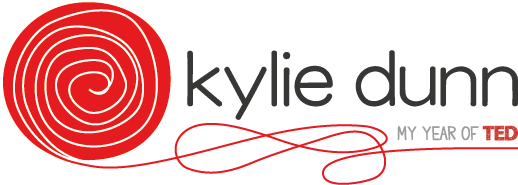A simple solution to open plan noise by Julian Treasure
Activity 3 in My Year of TED was Better Listening - inspired by Julian Treasure's TED Talks 5 ways to listen better and Shh! Sound health in 8 steps for two reasons (mainly using the former). When I took on this activity it was mainly designed around improving the quality of my listening, and the sound in my environment. Below is what I said about it in the launch post:
This is about so much more than "active listening", it is about improving your quality of hearing and ability to channel and enjoy sound. Even more than that it's about connecting and understanding your environment and the other people in it.
The challenge for me is to become a conscious listener - to become better connected with my environment and also find appropriate ways to control my soundscape when I need to.
I mention this because yesterday I listened to Julian's latest talk, given at TEDxCannes, The sound of happiness. Julian's progression with trying to get designers of spaces to incorporate sound into their work, as much as light, has been interesting to watch.
Open plan doesn't workIt's fascinating that there is still a lack of uptake in what he is talking about. I worked in open plan offices for most of my working life, I was fortunate enough to have an office for a while when I was in Defence. I bet the majority of you have to tolerate these ineffective working spaces as well.There is one fact that Julian quotes in his talk that should be influencing everyone who runs an organisation - Open plan offices reduce productivity by 66%!!! So you are two-thirds less productive when you sit in an open plan office than if you were to have your own space, and yet open plan is still the preferred design for most organisations.Open plan is popular because in outlay, rent and fitout it is cheaper than giving everyone walls. But if it reduces productivity by 66% is it cheaper in the long run?Controlling your soundscapeIf you work in an open plan office you don't need to be told how distracting it is, and how disruptive it can be to your production levels. You know that when Molly picks up the phone you might as well go and make a coffee, because you will not be able to focus while she's on the call. You know that when Jim comes over to flirt with the admin women the most you will be able to do is clean up your emails while trying not to audibly laugh at his banter.The most important thing I learned from 30 days of Better Listening was that I can, and should, control my soundscape. I started having earbuds in whenever I was doing focused work, so I could block out the various things happening around me. I find that music can be distracting as well, so I used sites that had different sounds like rainstorms and birds singing.Listening to Julian's talk yesterday, I discovered an even better resource for this. He has helped to develop an app called Study, it's part of Sound Education. It plays 45 of ambient music with birds and other natural sounds, it stops at 45 minutes to remind you to get up and take a break from what you are doing - so that's an extra bonus.I may not work in a distracting open plan office any longer, I'm lucky to hear anyone's voice during my work day. But I still downloaded it to use when I am in a public place, and even when the quietness of my home office is too distracting.I've listened to it a few times now and I recommend it - it's a free app so what do you have to lose. Take back some control of your working environment, and if you wear headphones instead of earbuds it might even stop people coming up to interrupt you as often as well (triple bonus).Do you work in an open plan office and find the soundscape distracting? How do you deal with the noise levels of your workplace?

